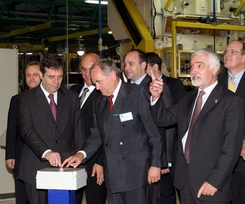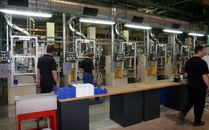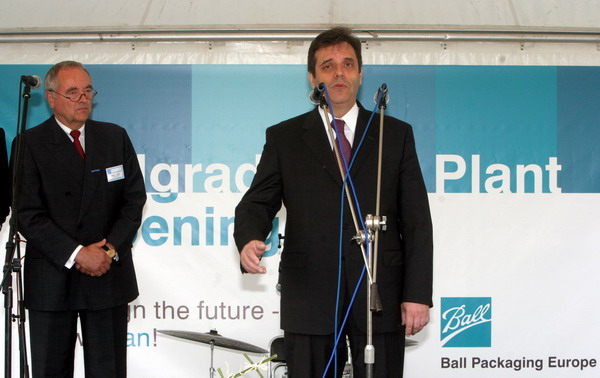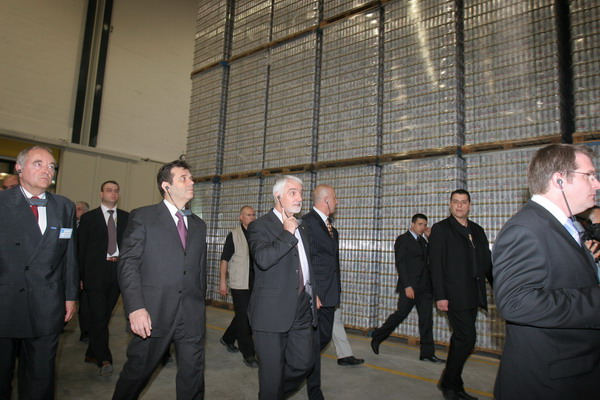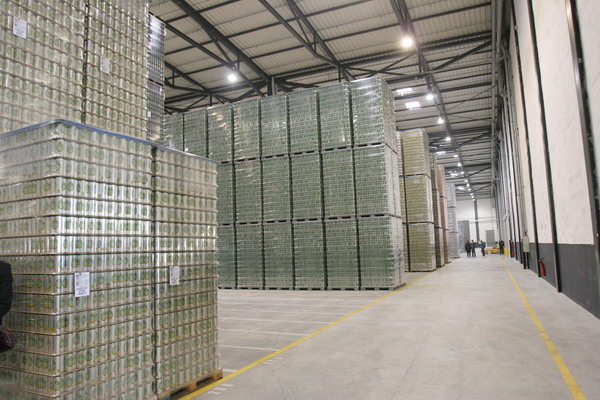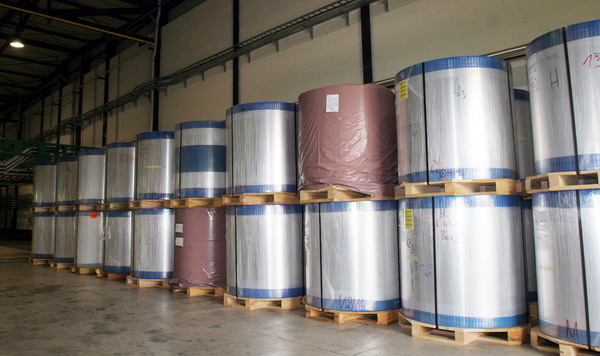- Serbia
Get to know Serbia
- Citizens
Culture and science
Health services
Pension and disability insurance
- Business
Employment
Economy
- Media
- Government
- Contact
Keep in touch
Contact form
Back
Keepin touch
Whether you have a question, comment, suggestion or any problem in the purview of the government, send us your message and we will try to respond as soon as possible. If your problem is not in our purview, we will forward your message to the relevant institution.
Q:
A:
Kostunica opens Ball Packaging Europe’s can plant in Zemun
Belgrade,
28 September 2005
Serbian Prime Minister Vojislav Kostunica and Ball Packaging Europe Chairman and Chief Executive Officer Hanno Fiedler opened today a €50 million aluminium can plant in Zemun, the biggest foreign greenfield investment in Serbia so far.
The factory, covering 31,000 square metres, has been designed to operate two production lines, but it will initially utilise only one, which has a capacity to turn out around 650 million beverage cans a year, or 2.2 million a day, or 1,700 per minute.
Kostunica thanked Ball Packaging Europe officials for their contribution to “one of the biggest economic miracles in Serbia,” given that the investment symbolises everything that Serbia is aiming for, that is, to “become a free, export-orientated market attractive to foreign investors.”
“Factories like this are what we are looking for and what we dream about, because they are very important for the future of Serbian citizens,” said Kostunica and added that the plant employs 120 people and that the workforce will grow when the other production line is commissioned.
Kostunica stressed that the manufacturing process is completely environmentally friendly and he added that it is very important to know that products will be recycled.
Recalling that the Organisation for Economic Cooperation and Development (OECD) has declared Ball Packaging Europe the “foreign investor of the year,” Kostunica noted that the Serbian government has done a lot to create a favourable investment climate so as to make such investments “a rule rather than an exception” in Serbia.
He said that the World Bank has put Serbia on a list of countries that have been successful reformers when it comes to economic development and procedures for investing and starting a business and that the country is now a “hit” for foreign investors.
“We are proud of what we have managed to do in a short period of time, given that only a year ago there were still doubts that all this was possible,” said Kostunica and added that Ball Packaging has invested the most and cast away those doubts.
Kostunica thanked Ball Packaging Europe officials for their contribution to “one of the biggest economic miracles in Serbia,” given that the investment symbolises everything that Serbia is aiming for, that is, to “become a free, export-orientated market attractive to foreign investors.”
“Factories like this are what we are looking for and what we dream about, because they are very important for the future of Serbian citizens,” said Kostunica and added that the plant employs 120 people and that the workforce will grow when the other production line is commissioned.
Kostunica stressed that the manufacturing process is completely environmentally friendly and he added that it is very important to know that products will be recycled.
Recalling that the Organisation for Economic Cooperation and Development (OECD) has declared Ball Packaging Europe the “foreign investor of the year,” Kostunica noted that the Serbian government has done a lot to create a favourable investment climate so as to make such investments “a rule rather than an exception” in Serbia.
He said that the World Bank has put Serbia on a list of countries that have been successful reformers when it comes to economic development and procedures for investing and starting a business and that the country is now a “hit” for foreign investors.
“We are proud of what we have managed to do in a short period of time, given that only a year ago there were still doubts that all this was possible,” said Kostunica and added that Ball Packaging has invested the most and cast away those doubts.
Hanno Fiedler said that the plant started operations in May this year, only ten months after receiving a building permit for its construction.
According to him, the plant in Belgrade, which is a branch office of the US corporation Ball Company, will be the centre of production for southeastern Europe.
Fiedler said that the most significant partners of Ball Packaging Europe are Coca Cola, Pepsi, Heineken, Carlsberg, Lasko Pivo and Knjaz Milos.
Fielder pointed out that a double-digit increase rate of can sales is anticipated in the next several years in central and eastern Europe, whose market has shown an increase of 27 percent last year, that is, 1.3 billion cans were produced.
He reiterated that Ball Packaging had founded a recycling organisation last year, whose aim is gathering, sorting and handling used cans, and added that the Belgrade centre for gathering will start operations by the end of the year and that the construction of several recycling centres is anticipated in other parts of Serbia.
According to him, Belgrade’s geographical position is especially favourable for business development, since it is a rapidly developing market.
Attending the official opening of the plant in Batajnica were Serbian Deputy Prime Minister Miroljub Labus, Serbian parliament Speaker Predrag Markovic, Serbian Minister of Finance Mladjan Dinkic, Serbian Minister of Economy Predrag Bubalo, Serbian Minister of International Economic Relations Milan Parivodic, as well as representatives of banks and successful Serbian companies.
According to him, the plant in Belgrade, which is a branch office of the US corporation Ball Company, will be the centre of production for southeastern Europe.
Fiedler said that the most significant partners of Ball Packaging Europe are Coca Cola, Pepsi, Heineken, Carlsberg, Lasko Pivo and Knjaz Milos.
Fielder pointed out that a double-digit increase rate of can sales is anticipated in the next several years in central and eastern Europe, whose market has shown an increase of 27 percent last year, that is, 1.3 billion cans were produced.
He reiterated that Ball Packaging had founded a recycling organisation last year, whose aim is gathering, sorting and handling used cans, and added that the Belgrade centre for gathering will start operations by the end of the year and that the construction of several recycling centres is anticipated in other parts of Serbia.
According to him, Belgrade’s geographical position is especially favourable for business development, since it is a rapidly developing market.
Attending the official opening of the plant in Batajnica were Serbian Deputy Prime Minister Miroljub Labus, Serbian parliament Speaker Predrag Markovic, Serbian Minister of Finance Mladjan Dinkic, Serbian Minister of Economy Predrag Bubalo, Serbian Minister of International Economic Relations Milan Parivodic, as well as representatives of banks and successful Serbian companies.
-
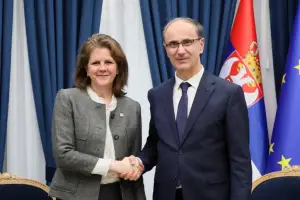 Belgrade, 20 January 2026
Belgrade, 20 January 2026Serbia committed to further constructive cooperation with ICRC
-
 Belgrade, 19 January 2026
Belgrade, 19 January 2026Serbia proposes solutions to mitigate restrictions on drivers’ stays in Schengen Area
-
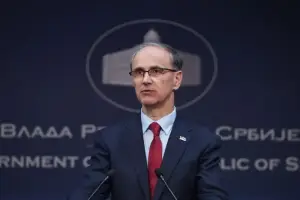 Belgrade, 19 January 2026
Belgrade, 19 January 2026Prime Minister expresses condolences over railway accident in Spain
-
 Belgrade, 16 January 2026
Belgrade, 16 January 2026Efficient work of teams addressing consequences of severe winter weather
-
 Prijepolje, 12 January 2026
Prijepolje, 12 January 2026State monitoring situation, providing assistance to citizens in affected districts
-
 Priboj/Prijepolje, 12 January 2026
Priboj/Prijepolje, 12 January 2026Situation stabilised in Priboj, Prijepolje
-
 Nova Varoš, 12 January 2026
Nova Varoš, 12 January 2026Situation in Zlatibor District completely under control
-
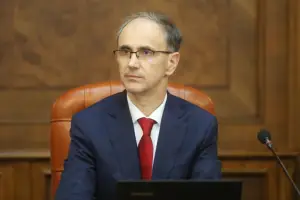 Belgrade, 11 January 2026
Belgrade, 11 January 2026Gradual stabilisation of situation caused by adverse weather conditions in Serbia
-
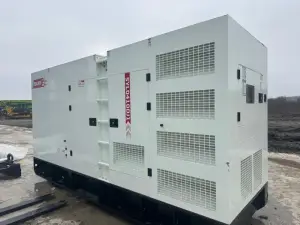 Belgrade, 10 January 2026
Belgrade, 10 January 2026Increased engagement of field services due to adverse weather conditions
-
 Belgrade/Banja Luka, 8 January 2026
Belgrade/Banja Luka, 8 January 2026Respect for Dayton Agreement only path to lasting peace in region

